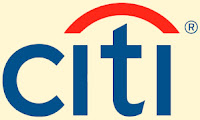 |
| Credit Cards |
The credit crunch that's been causing problems in American credit markets has been affecting all classes of Americans, from billionaire Wall Street insiders trying to finance huge corporate takeover deals to middle-class consumers looking for attractive deals on loans and credit cards. With the housing market still languishing and many seasoned economists declaring that the American economy is already in a recession, it seems that 2008 is not going to be a good year for many Americans, from a money and finance perspective. The Federal Reserve has been responding to turmoil in domestic financial markets and the slumping economy by cutting short-term interest rates, but there is no way to tell when or if these Fed actions will jump start the economy. Slowly but progressively, banks have been approving fewer and fewer credit card applications since the subprime debacle began at the end of last summer. Thankfully, however, applicants with strong credit profiles can still get approved for high quality credit products. Moreover, in the American market today, financially secure individuals can still find
0% introductory annual percentage rate (APR) balance transfer credit cards that don't charge a balance transfer fee, even with certain small business credit cards.
On the consumer side, feeless, 0% balance transfer deals are still being offered by some of America's most reputable financial institutions, including the Bank of America® (BofA), American Express® and the Pulaski Bank &and Trust Company. Web surfers looking for business credit cards which combine 0% intro APR on transferred balances with no balance transfer fee can choose from a healthy selection on offer from Citi®.
"We've been getting emails from consumers who have been writing us about manifestations of the liquidity crunch that have been causing considerable pain for both American banks and individuals trying to find favorable credit deals. Cardholders have been complaining most about seemingly random credit line decreases, ever for customers with perfect or near-perfect credit. A cardholder who has an excellent credit history but who also has a high debt-to-credit ratio may be targeted by their bank for a credit limit decrease or an interest rate increase, since banks are worried about consumers who may be relying too heavily on revolving credit. It's never a good idea to have a high balance on a credit card. Consumers should use credit cards to take advantage of rewards programs and zero APR offers, and for emergencies. The consumer who tends to carry a balance from month to month may be headed from trouble in this economy," said Brown.
"The only positive consequence of this sagging economy is that the Fed has been responding to it by lowering short-term interest rates. These moves by the Federal Reserve have made obtaining and paying off loans and credit cards easier," Brown added.
Since mid-September of 2007, the U.S. Prime Rate has been lowered from 8.25% to the current 5.25%, thanks to interest-rate cuts by the U.S. Federal Reserve. Since most variable-rate credit cards -- and many other types of loans -- are indexed to
Prime, most consumers and business owners who have been making payments on these loans and credit cards have been enjoying reduced APR's. Any consumer with a variable-rate credit card indexed to Prime who hasn't seen a decrease in their APR over the last 6 months should contact their bank and ask for a lower rate, Brown advises.
Some credit cards and loans are indexed to the
London Interbank Offered Rate (LIBOR). Since LIBOR tracks very closely with America's benchmark, short-term interest rate -- the Fed Funds Target Rate -- individuals and business owners with loans or credit cards indexed to LIBOR should be enjoying lower payments as well.
The Federal Reserve is expected to cut short-term rates again when the Federal Open Market Committee (FOMC) meets for its next monetary policy meeting on April 30, 2008.
0% intro APR credit card offers are ever-evolving. Brown urges consumers to visit the blogs at the FedPrimeRate.com website to stay informed about the latest news and tips from the credit card industry and to read reviews of newly released credit cards. Brown welcomes any and all questions and comments, which can be emailed from either site's email form.
"The banks make a lot of money with credit cards, so they still want to fill consumers' wallets with their plastic despite ongoing troubles in the credit markets. Individuals who are interested in getting the best possible deal with a consumer card, business card or any other type of loan should be sure to keep their credit score high, pay all their bills on time and try to keep their debt-to-credit ratio at around 30%. Consumers who plan on spending money on a major purchase should try their best to pay cash. If an all-cash payment isn't possible, consumers should apply as much cash as possible to the purchase, and put the rest on a credit card that has a high credit limit, a zero or low APR and a generous rewards program," Brown concluded.
SourceLabels: 0_APR, bank_of_america, citi, citibank, free_balance_transfer, no-fee_balance_transfer, pulaski_bank






